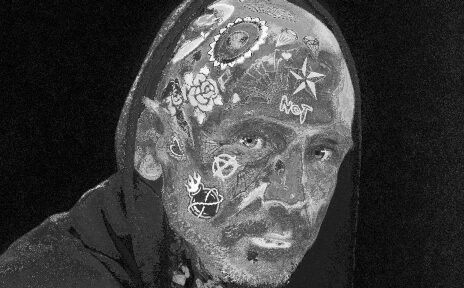
‘Do you fancy a coffee?’ may seem like a seemingly simple phrase used every day – yet for me, those five words saved my life 20 years ago.
I was working as a funeral director and went through a very low time. I didn’t realise when you take on that job, you also take on all the grief that those you work for are feeling for their lost loved ones.
Working away from home and friends was tough, and I remember I’d started increasing my alcohol intake. I was living in hotels at the time and although my consumption wasn’t significant, I did start drinking most evenings and began feeling really depressed.
Walking to the train station, I had no idea what I was planning on doing.
As I stood there, feeling helpless, I looked at a Samaritans sign.
I felt numb. I didn’t actually have any thoughts going through my head at all, I couldn’t concentrate on anything but the sign.
I don’t know how long I was standing there for. It could’ve been a few minutes, it could’ve been hours.
A brief interaction, with someone I didn’t know, stopped me from entertaining a dark thought and was enough to shock me out of what I was contemplating
A lady who had been watching me, came over and asked: ‘Do you fancy a coffee?’
That brief interaction, with someone who I didn’t know, stopped me from entertaining a dark thought and was enough to shock me out of what I was contemplating.
I didn’t actually take up her kind offer as just the words were enough to bring me out of my thoughts, but I often think back to that moment – I owe her a lot, certainly more than a hot drink.
Thankfully, things have gotten a lot better since. Had I known more about Samaritans at the time, it would have been a call I’d have probably made. It’s so nice that people in a dark place like I was can pick up the phone and not be judged, or hush-hushed for talking about feeling low or suicidal.

The experience inspired me to become a Samaritans listening volunteer several years later – I’m on the training team and I love seeing how new volunteers flourish.
Soon after the intervention at the train station I quit my job, too. I knew at the time I wasn’t happy, but it was only after I left that I realised how much the role was impacting my mental health.
Now, by day I’m a Vicar, alongside working with the homeless and running a dementia singing group and café, too. By night, I listen to those who need someone to speak to.
When people have problems and speak to someone, especially someone who won’t interrupt them or give advice, they often answer their questions themselves as opposed to being told what to do.
Some professionals (or friends and family) might suggest a specific treatment or therapy – Samaritans listening volunteers never give advice or suggest solutions.

Having that first person who listens can give someone the confidence to consider telling their doctor, friends, or family about how they’re feeling.
Last year I was actually able to repay the favour done by the woman who stopped me all those years ago by intervening and saving someone else’s life.
Normally, I go to the gym at a certain time, but on this particular evening I was early, and ended up leaving when I’d normally arrive. I noticed a security guard running past me and towards a lady who was about to take her life.
I didn’t even think, I just went straight over to her and discreetly said that I was a Samaritan and was there anything I could do to help? She nodded.
I introduced myself, then said: ‘You seem to be having a really bad day, would you like to talk about it?’
She declined but I carried on. ‘You must have had something happen this evening to make you want to be here. It’s OK to feel the way you’re feeling.’
At this point the security guard was looking a bit puzzled. The lady started talking to me and said she just wanted to die.
‘When you say you want to die, is it that you want to end your life, or is it that you want the pain you’re going through to stop?’ I asked.
Now the lady was in tears and nodded – she wanted the pain she was in to stop.
So, I went on: ‘Can you give me a few minutes to talk to you about it and we’ll see if I can point you in the right direction and get you some help?’
She came and sat where she was safer.
The guard at this point had called the police while I continued talking. The woman told me that what she was going through was too much to bear and she didn’t want to carry on.
I let her know it was natural to feel the way she was feeling, but that there were people available to listen who would understand.
The police arrived with a mental health nurse. The woman gave me a massive hug as she got into the car.
I didn’t think ‘what if it goes wrong’ – I was preoccupied with understanding what the lady was thinking. It gave me confidence to approach and say words that the security guard was thinking I shouldn’t be – like asking if she wanted to die.
It looked as though she really appreciated having someone not be scared of what she was saying. It made that situation a lot easier to handle.
To approach someone can be a nerve-wracking experience, but if you were in that situation, wouldn’t you want someone to look at you as a human? I’d say trust your instincts, you don’t need training to listen and give space to a hard conversation.
People need someone to listen to more than anything. And if we give someone in need that chance, we can help to prevent suicide at railway stations and other public settings.
Samaritans’ Small Talk Saves Lives campaign, in partnership with Network Rail and British Transport Police, aims to empower the public to trust their instincts and start a conversation if they think someone needs help at railway stations and other public settings.
To find out more, visit Samaritans.org/smalltalksaveslives
Do you have a story you’d like to share? Get in touch by emailing [email protected].
Share your views in the comments below.
Source: Read Full Article

